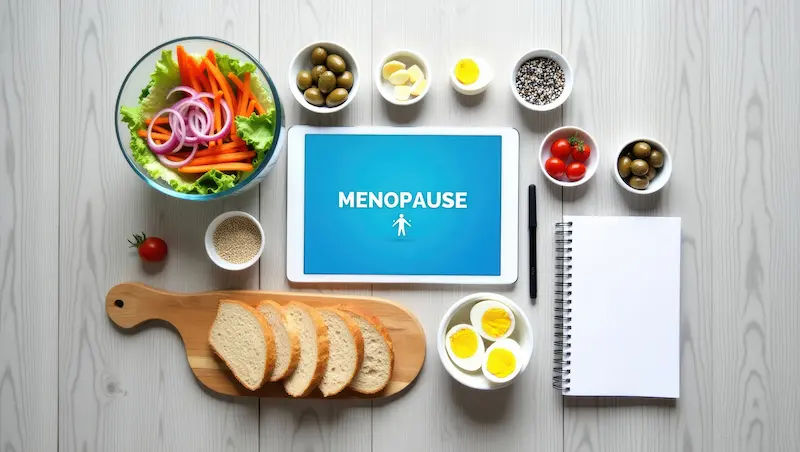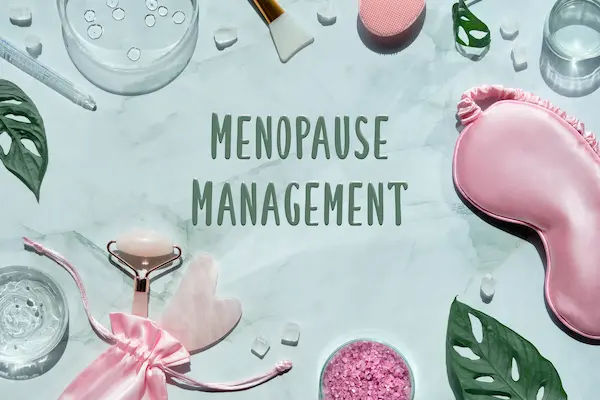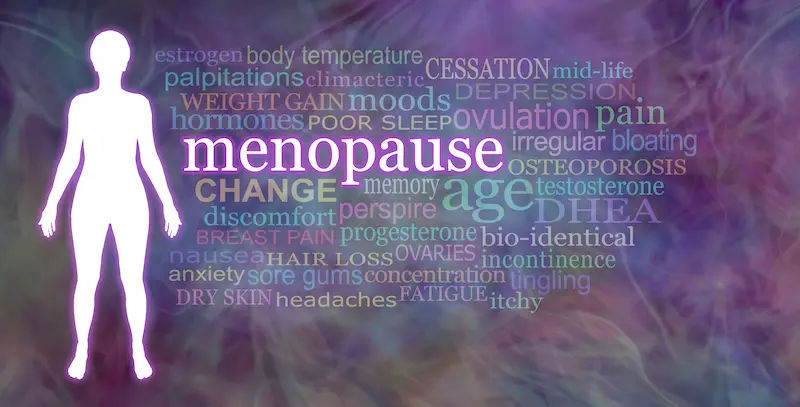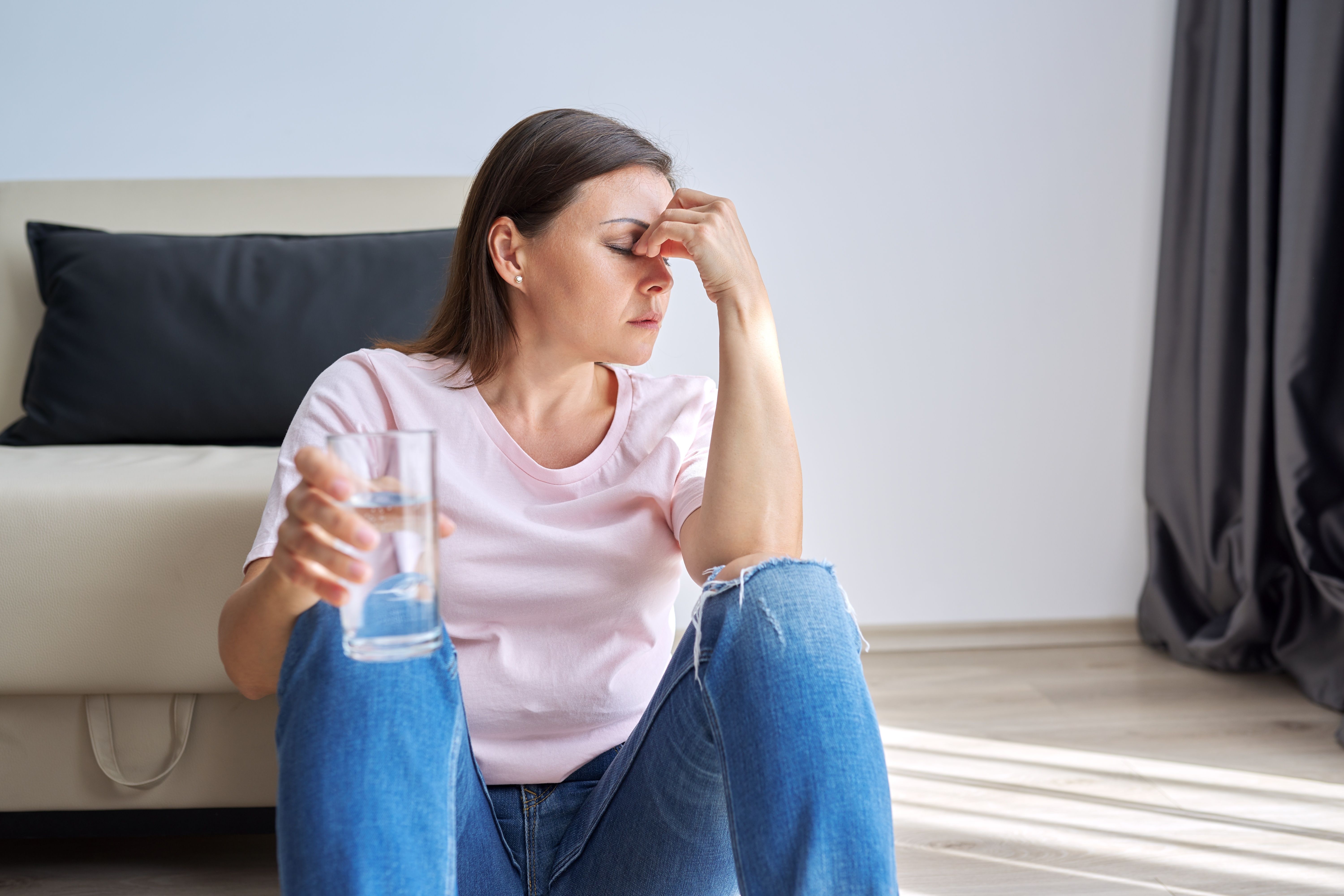Navigating the Change: A Comprehensive Guide to Menopause's Impact on Your Health
Explore the impact of menopause on women's health, including symptoms, long-term risks, and effective strategies to manage this natural transition.


Menopause is not a disease; it's a natural biological milestone marking the end of a woman's reproductive years. Yet, the impact of menopause on women's health is profound and multifaceted, influencing everything from physical comfort and sleep patterns to long-term risks for heart and bone health. For many, the journey through perimenopause and beyond can feel isolating and confusing, with symptoms often dismissed as "just part of being a woman." This guide aims to change that narrative. We will demystify the stages of menopause, explore its wide-ranging effects on your body and mind, and provide actionable strategies to not just manage this transition, but to thrive during it. Understanding these changes is the first step toward taking control of your well-being for the years ahead.
What Exactly is Menopause? Understanding the Stages
distinct stages, each with its own characteristics and health considerations. Recognising which stage you are in can help you better understand your symptoms and seek appropriate care.
Perimenopause: The Lead-Up to the Change
Perimenopause, often called the menopausal transition, typically begins in a woman's 40s but can start earlier. This phase can last anywhere from a few months to over a decade, with the average being about four years. The key feature is fluctuating hormone levels, particularly oestrogen and progesterone, as the ovaries gradually wind down their function. These fluctuations are responsible for the classic symptoms like irregular periods, hot flushes, sleep disturbances, and mood swings. It's important to note that pregnancy is still possible during perimenopause, so contraception should be considered if pregnancy is not desired.
Menopause: The Official Milestone
A woman is officially in menopause after she has gone 12 consecutive months without a menstrual period. This milestone is confirmed retrospectively. The average age for menopause in most parts of the world is around 51, but it can normally occur between the ages of 45 and 55. At this point, oestrogen levels have declined significantly and permanently. The symptoms that began in perimenopause often continue or can even intensify during the early postmenopausal years.
Postmenopause: The New Normal and Long-Term Health
Postmenopause refers to the rest of your life after the 12-month mark has passed. While some women find that symptoms like hot flushes ease over time, the chronically low levels of oestrogen present new considerations. The focus shifts from managing acute symptoms to safeguarding long-term health. The decline in oestrogen is linked to an increased risk of certain conditions, making proactive health management crucial. This includes prioritising cardiovascular health, maintaining bone density, and managing metabolic changes.
The Immediate Impact: Recognising the Common Symptoms
The impact of menopause is most immediately felt through a spectrum of symptoms that vary widely in type and severity from woman to woman. While some sail through with minimal disruption, others experience significant challenges.
Vasomotor Symptoms: Hot Flushes and Night Sweats
These are the hallmark symptoms. A hot flush is a sudden feeling of intense heat that spreads through the upper body, often accompanied by flushing, sweating, and a rapid heartbeat. When they occur at night (night sweats), they can severely disrupt sleep, leading to fatigue and irritability. It's estimated that up to 80% of women experience these vasomotor symptoms. The exact cause is linked to the effect of declining oestrogen on the hypothalamus, the part of the brain that regulates body temperature.
Consult a Gynecologist for the best advice
Psychological and Emotional Changes
The hormonal rollercoaster of menopause can significantly affect mental and emotional health. Many women report increased anxiety, irritability, and feelings of sadness or depression. "Brain fog"—difficulty with concentration and memory—is also a common and frustrating complaint. It's essential to recognise that these changes are not "all in your head"; they have a biological basis. However, they can also be exacerbated by other factors like sleep deprivation from night sweats.
Physical Changes in the Body
Beyond the well-known symptoms, other physical changes occur. These can include:
Vaginal and Urinary Health
Declining oestrogen leads to vaginal dryness, which can cause discomfort or pain during intercourse (a condition known as genitourinary syndrome of menopause, or GSM). It can also increase the risk of urinary tract infections.
Skin and Hair
Skin may become drier and thinner, and some women experience hair thinning or loss.
Sexual Function
Changes in libido are common and can be influenced by physical discomfort, hormonal shifts, and psychological factors.
The Long-Term Health Implications of Menopause
The most significant impact of menopause on women's health extends beyond immediate symptoms to influence long-term disease risk. Understanding these connections empowers you to take preventive action.
Heart Health: More Than Just a Woman's Issue
Oestrogen has a protective effect on the cardiovascular system, helping to keep blood vessels flexible and supporting healthy cholesterol levels. After menopause, the risk of heart disease increases significantly and becomes a leading cause of death for women. It's vital to monitor blood pressure, cholesterol, and blood sugar levels. Adopting a heart-healthy lifestyle—including a balanced diet, regular exercise, and not smoking—is one of the most important steps you can take during this life stage.
Bone Density and the Risk of Osteoporosis
Oestrogen plays a critical role in bone remodelling. After menopause, the rate of bone loss accelerates, leading to a condition called osteoporosis, where bones become weak, brittle, and more prone to fractures. The spine, hips, and wrists are particularly vulnerable. A bone density scan (DEXA scan) is often recommended for postmenopausal women to assess their risk. Ensuring adequate intake of calcium and Vitamin D, along with weight-bearing exercises, is crucial for bone health. If you are concerned about bone density, consulting a doctor online with Apollo24|7 can help you understand if a test is right for you.
Metabolic Shifts and Weight Management
Many women notice a shift in their metabolism during and after menopause, often leading to weight gain, particularly around the abdomen (the "menopause belly"). This is partly due to hormonal changes and a natural loss of muscle mass, which slows down the metabolic rate. This central weight gain is not just a cosmetic concern; it's linked to a higher risk of heart disease and type 2 diabetes. Focusing on a nutrient-rich diet, strength training to preserve muscle, and managing stress can help counteract these metabolic shifts.
Taking Control: Effective Strategies for Managing Menopause
You are not powerless against the changes of menopause. A proactive approach combining medical, lifestyle, and supportive strategies can dramatically improve your quality of life.
Hormone Therapy (HT): Weighing the Benefits and Risks
Hormone Therapy (HT), formerly known as HRT, is the most effective treatment for relieving moderate to severe menopausal symptoms, especially hot flushes and vaginal discomfort. It works by replenishing the body's oestrogen levels. While highly effective, HT is not without risks, which can vary based on the type, dose, duration of therapy, and your personal health history. The decision to use HT should be a personalised one made in close consultation with your doctor after a thorough evaluation of the benefits and risks for your specific situation.
Lifestyle Modifications: Diet, Exercise, and Sleep
Lifestyle changes are the cornerstone of managing menopause.
- Diet: Incorporate calcium-rich foods (dairy, leafy greens) and Vitamin D (fatty fish, fortified foods). Phytoestrogens (found in soy, flaxseeds) may help some women. Limit caffeine, alcohol, and spicy foods, which can trigger hot flushes.
- Exercise: Regular physical activity is non-negotiable. A combination of cardio (brisk walking, swimming) for heart health and strength training (weights, resistance bands) for bones and metabolism is ideal. Yoga and Pilates can also improve flexibility and reduce stress.
- Sleep: Prioritise good sleep hygiene. Keep your bedroom cool, establish a relaxing bedtime routine, and avoid screens before bed to combat insomnia.
Non-Hormonal Medications and Alternative Therapies
For women who cannot or prefer not to take HT, other options exist. Certain antidepressants and anti-seizure medications can reduce hot flushes. For vaginal dryness, over-the-counter lubricants and moisturisers can provide relief. Some women find complementary approaches like cognitive-behavioural therapy (CBT) for mood and sleep, or acupuncture for hot flushes, to be beneficial. Always discuss any new supplements or therapies with your doctor to ensure they are safe and won't interact with other medications.
Mental and Emotional Well-being: A Critical Component
The impact of menopause is not solely physical. This life transition can coincide with other significant changes—children leaving home, caring for ageing parents, or re-evaluating career paths—which can compound stress. Prioritising mental health is essential. This can mean talking openly with friends or a partner, joining a support group, or seeking professional counselling. Practices like mindfulness, meditation, and spending time on hobbies can build resilience and foster a positive mindset during this change.
Conclusion
The journey through menopause is unique for every woman, but understanding the profound impact of menopause on women's health provides a roadmap for navigating it with confidence. It's a time to shift from simply enduring changes to actively shaping your health trajectory for the decades to come. By recognising the symptoms, acknowledging the long-term risks, and embracing a proactive approach that combines medical guidance, lifestyle adjustments, and emotional support, you can transform this transition into an opportunity for renewal and empowerment. Remember, menopause is not an end but a new beginning. Take charge of your health, listen to your body, and don't hesitate to seek the help you deserve. If your condition does not improve after trying these methods, book a physical visit to a doctor with Apollo24|7 for a comprehensive evaluation.
Consult a Gynecologist for the best advice
Consult a Gynecologist for the best advice

Dr. Mona Yadav
Obstetrician and Gynaecologist
19 Years • MBBS, MD (Obstetrics & Gynaecology)
Dombivli
Nulife multispeciality, Dombivli
Dr. K Anusha
Obstetrician and Gynaecologist
4 Years • MBBS, DGO
Yemmiganur
SRINIVASAA HOSPITAL, Yemmiganur

Dr. Parul Sharma
Obstetrician and Gynaecologist
8 Years • MBBS, MS (Obstetrics & Gynaecology)
New Delhi
THE DOCTORS NESST, New Delhi
Dr. J Aswini Sowndarya
Obstetrician and Gynaecologist
4 Years • MBBS, MS Obstetrics & Gynaecology, FMAS, FART
Rajamahendravaram
Tholat Memorial Multi Speciality Hospital, Rajamahendravaram

Dr. Debajyoti Goswami
Obstetrician and Gynaecologist
10 Years • MBBS,D.G.O(DNB),Adv. Infertility Tech.(AIIMS),Fellowship in Diabetes(U.K),Comprehensive Abortion Care(Govt. Of W.B), Certificate in Clinical Embryology(AIIMS, BHUBANESWAR)
Bankura
D.G Clinic, Bankura
(25+ Patients)
Consult a Gynecologist for the best advice

Dr. Mona Yadav
Obstetrician and Gynaecologist
19 Years • MBBS, MD (Obstetrics & Gynaecology)
Dombivli
Nulife multispeciality, Dombivli
Dr. K Anusha
Obstetrician and Gynaecologist
4 Years • MBBS, DGO
Yemmiganur
SRINIVASAA HOSPITAL, Yemmiganur

Dr. Parul Sharma
Obstetrician and Gynaecologist
8 Years • MBBS, MS (Obstetrics & Gynaecology)
New Delhi
THE DOCTORS NESST, New Delhi
Dr. J Aswini Sowndarya
Obstetrician and Gynaecologist
4 Years • MBBS, MS Obstetrics & Gynaecology, FMAS, FART
Rajamahendravaram
Tholat Memorial Multi Speciality Hospital, Rajamahendravaram

Dr. Debajyoti Goswami
Obstetrician and Gynaecologist
10 Years • MBBS,D.G.O(DNB),Adv. Infertility Tech.(AIIMS),Fellowship in Diabetes(U.K),Comprehensive Abortion Care(Govt. Of W.B), Certificate in Clinical Embryology(AIIMS, BHUBANESWAR)
Bankura
D.G Clinic, Bankura
(25+ Patients)
More articles from Menopause
Frequently Asked Questions
What are the first signs of perimenopause?
The earliest signs are often changes in your menstrual cycle (shorter, longer, heavier, or lighter periods) and the onset of vasomotor symptoms like hot flushes and night sweats. Mood swings and sleep disturbances are also common initial indicators.
Can menopause cause weight gain even if I haven't changed my diet or exercise routine?
Yes, it can. The hormonal shifts of menopause, particularly the decline in oestrogen, can lead to a change in fat storage, favouring the abdomen. Additionally, a natural age-related loss of muscle mass can slow down your metabolism, making it easier to gain weight even with the same habits.
Are there any natural remedies for menopause symptoms that actually work?
Some women find relief with certain approaches. For example, black cohosh may help with hot flushes for some, though evidence is mixed. Phytoestrogens in soy and flaxseed can have a mild oestrogen-like effect. Mindfulness and paced breathing can help manage hot flushes and anxiety. It's crucial to discuss any supplements with your doctor first.
How long do menopausal symptoms typically last?
The duration varies greatly. While the average length of experiencing hot flushes is about 7 years, some women may have them for a much shorter time, and others for over a decade. Most symptoms tend to lessen in intensity over time.
When should I be concerned about my menopausal symptoms?
You should consult a doctor if your symptoms are severe enough to disrupt your daily life, if you experience vaginal bleeding after menopause, or if you have concerns about your long-term health risks like osteoporosis or heart disease. A doctor from Apollo24|7 can help you determine if your symptoms are within the normal range or require further investigation.




